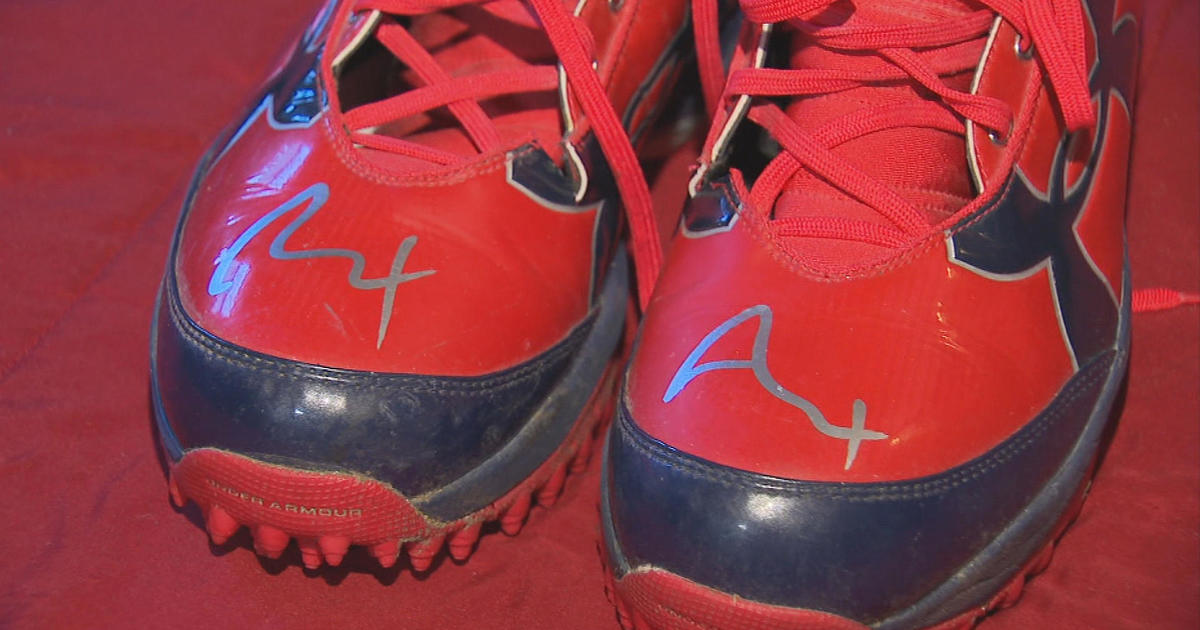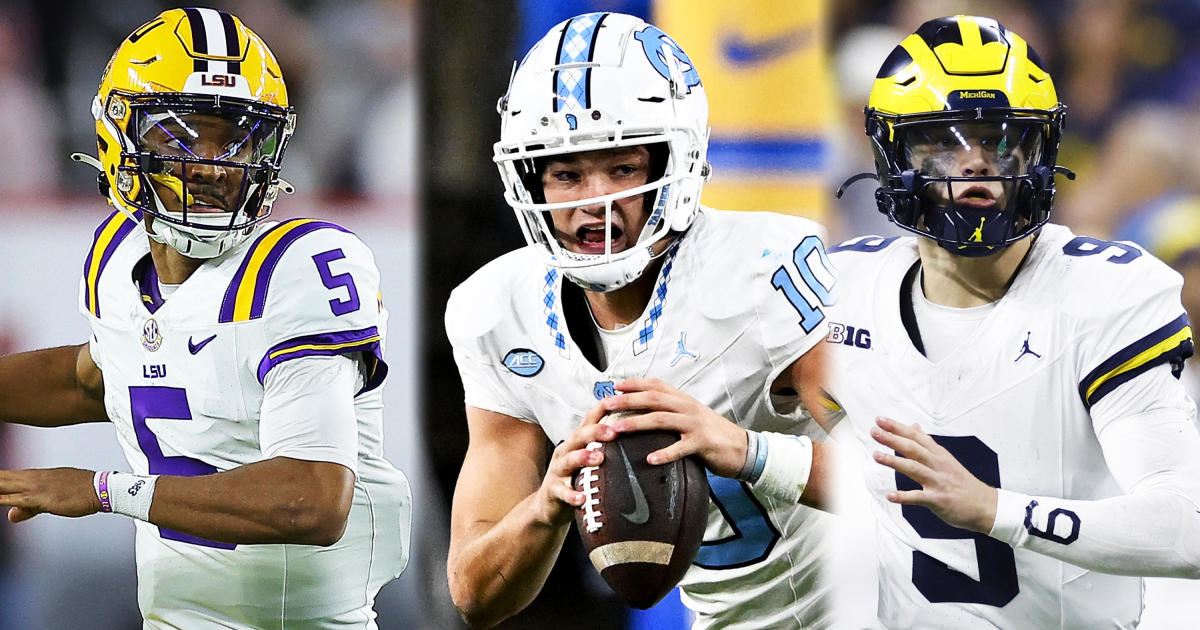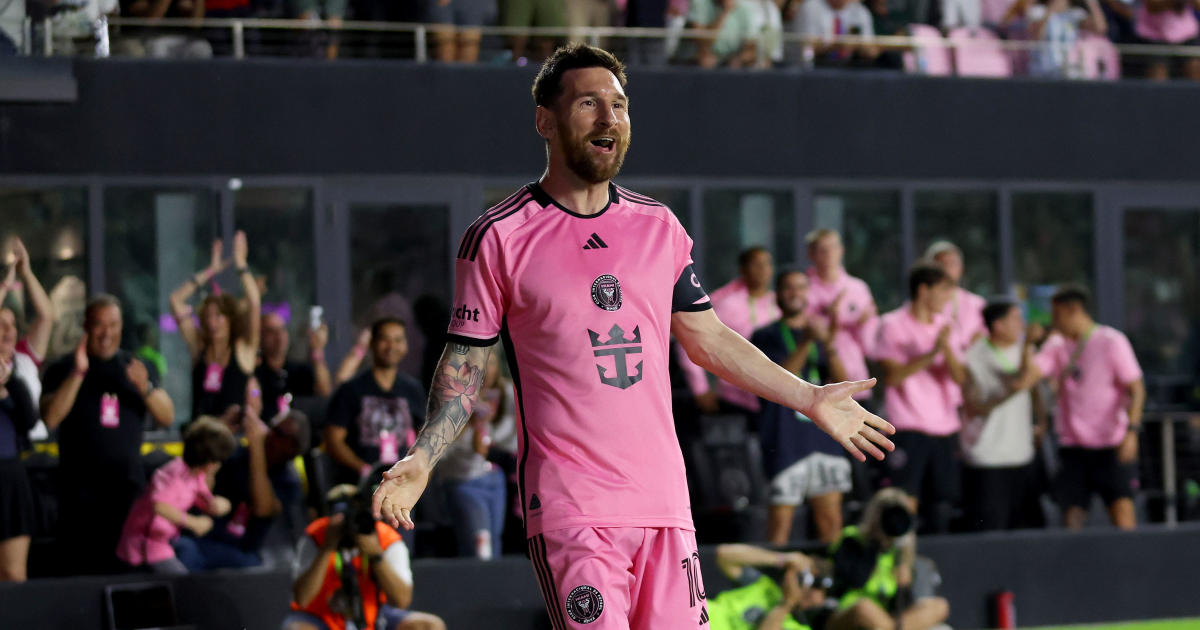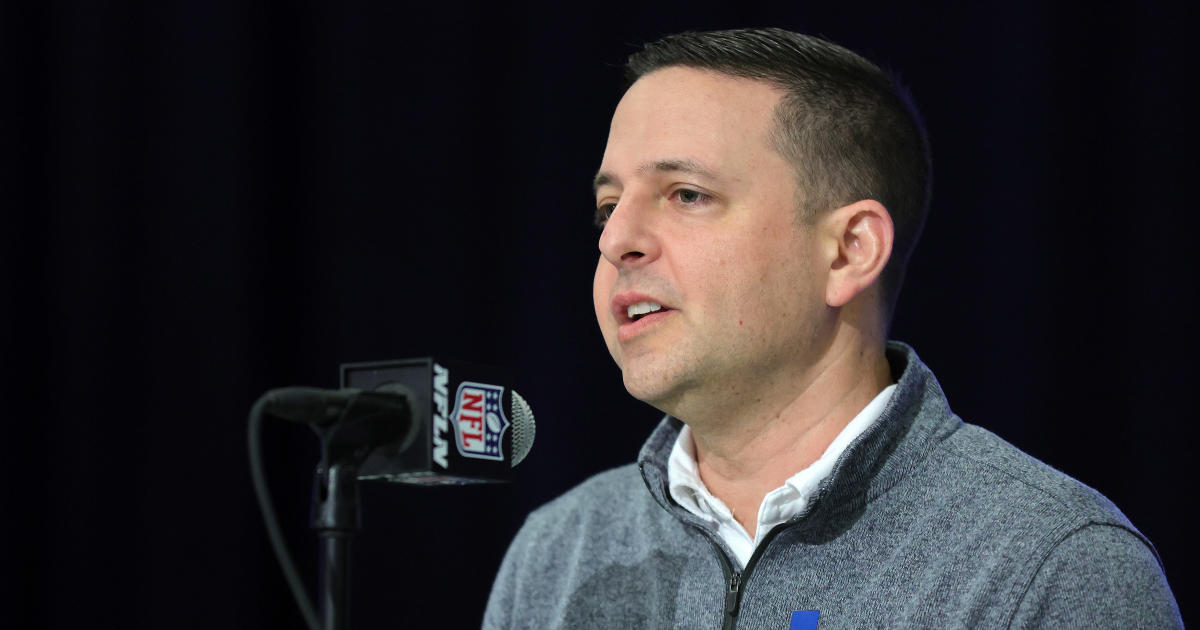Socci's Patriots Notebook: Brady's Vision Unlike Any Other
BOSTON (CBS) - For a few days in late July, the quarterback so accustomed to having his nearly every move caught on camera was the one taking video.
As part of a training-camp experiment by the New England Patriots, Tom Brady joined Ryan Mallett and Tim Tebow by practicing with a camera affixed to his helmet. Presumably, the purpose was to help others see what only quarterbacks do from their point of view in the pocket.
"We're taking a look at it, just to see if you could put together some really good teaching tape and teaching film for future players at the position, from seeing it from their perspective," offensive coordinator Josh McDaniels said at the time. "There are some kinks that I'd say we have to work out in terms of how much it's on, and the amount it moves and gyrates during the course of the time."
In other words, the camera may not blink; but it certainly bobs.
"Well, think about it, it's a camera bobbing up and down and moving all over the place. I could be looking at you and the camera could be shooting over here," Brady explained about the device attached to his face mask, above his helmet's left earhole.
At the time, Brady told reporters one other thing.
"I feel I have what I need to see," he said of his own two eyes.
That truth once again became self-evident two and a half months later, well into the most recent Sunday of Brady's 14-year career. In an eight-play, 68-second sequence, he led the Patriots to the winning score in a 30-27 victory over New Orleans.
LISTEN: Socci And Zo's Call Of The Comeback Win
With no timeouts and, ultimately, five seconds to spare, Brady hit four receivers with five passes to march 70 yards; the final 17 of which he covered by connecting with Kenbrell Thompkins. Like the 37 other times he led the Patriots from a fourth-quarter tie or deficit to victory, Brady revealed rare poise.
And showed how sharply he sees the whole field.
"(Tom) was always very poised and always had a real good vision in the game," New England head coach Bill Belichick said Tuesday in a media teleconference. "It could be a bad play that happened or an interception or a turnover or something, he would come to the sideline and say, 'OK, let's talk about what happened on that play.' He would very clearly say, 'This is what I saw. This is what happened. This is what this guy did, this is what this guy did, this is what the safeties did, this middle linebacker was here. This is what I saw on the route.'
"Then you go back and look at the film and all those things happened. The six, seven, eight, nine things that he described were pretty much the way the play unfolded. I think that's something that really (is) one of Tom's greatest strengths, his ability to see the field."
It serves Brady in all -- not only game-ending -- situations. Every contest, he keeps a running conversation with offensive coordinator Josh McDaniels. Between series, they review Polaroids of every play. Sometimes, those pictures don't capture everything Brady did.
"We go through those still photos and try to gain a hold of what is going on, what type of game plan the other team is trying to implement, how that is affecting some of the things we're doing, what we may have in our game plan that may be very good against what they're doing, or vice versa," McDaniels said on his weekly conference call. "Certainly we talk about if he sees certain things that may not be jumping out in the pictures...I think that is a constant conversation on game day, and you really need that."
For those of us wondering how Brady processes it all, he really can't explain it. Nor does he want to. All he knows is what he told us in July: those eyes are all that he needs.
"I don't think about that too much," Brady said of his expansive vision. "I don't know what other guys go through. I just kind of know what's natural for me. I'm just trying to go back, make the right read and find the open guy. We try to put pressure on the defense in different ways and try to find where the weak spots are and make those plays.
"I'm not sure, (but) it's probably good that I don't think about it."
TALKING ABOUT PRACTICE
This week at New York, and thereafter, the Patriots will play without defensive captains Vince Wilfork and Jerod Mayo, now that both are lost to season-ending injuries.
One of the ways the team has tried to fill the massive void in Wilfork's absence is by signing Marcus Forston off the practice squad. Though Forston wound up playing only six defensive snaps vs. the Saints, one of them resulted in an important play easily overshadowed by what followed.
Trailing by one, New England had just failed to convert a fourth-down try and used its first timeout with 2:36 left. Facing 2nd-and-6, New Orleans handed off to Pierre Thomas, who was upended in the backfield by a penetrating Forston. A loss of a yard, a second timeout by the Patriots and a third-down incompletion forced the Saints to settle for a field goal while taking less than a half-minute off the clock.
TALE OF THE TAPE: Patriots vs. Jets
Forston had spent most of the previous six weeks as a scout-team defender. His practice role was primarily mimicking opponents to aid the Patriots' preparation. He wasn't signed to the active roster until Saturday. Yet, when summoned at a critical time the following afternoon, Forston was ready.
His was the balancing act of a practice teamer. Every week each has to learn and execute what the opponent does, while gaining a grasp on the Patriots' ways.
"I'd say the majority of the meeting time is focused on what we do and the majority of the practice time is focused on what (opponents) do," explained Belichick, who noted the importance of using the same individual techniques whenever possible, even when executing different schemes. "There's definitely a balance there, and sometimes there's more of (it) at some positions or on one side of the ball from week to week than others.
"One week might be 90 percent of what we do. Maybe it's not quite the same play, but the techniques are the same...Maybe another week it might be 40 percent, I don't know. It isn't always the same, but that's the merging that we try to get to and it's not easy."
"Coach (Patrick) Graham always tells us, 'When you give (our) offense a look from the other team, you still can work your technique too at the same time," said Forston, alluding to the Patriots defensive line coach. "I can't go out there and make excuses, 'Oh, they want me to play it this way for the other team, but then again, I know we play it a different way.'"
Graham's message is consistent with what everyone on Belichick's staff stresses to all position groups.
"That's another aspect of our preparation and planning," Belichick says. "Like on Tuesdays, one of the things that we do is not only to talk about what we're going to do from a game-plan standpoint, but talk about how we're going to practice; who is going to practice, where (and) how that person can get the most out of their practice.
"They might be practicing the other team's plays, but they can still gain some experience and execution, because it's something that we do."
As you'd expect, it also involves individual effort outside of team practices.
"We always try to go out and learn early," Forston confirmed. "The D-line, we work early before practice starts and after practice."
GAME WITHIN THE GAME
This Sunday, for the second week in row and third time overall this season, the Patriots offense confronts a defense orchestrated by one of the Ryan twins. Rob coordinates for the New Orleans Saints and Rex, as their head coach, calls defensive plays for the New York Jets.
Both, of course, are sons of Buddy Ryan, the architect of the 1985 Chicago Bears' "46 defense." Each also is considered a "game-plan" coach.
As such, Rex figures to be less reliant on past tactics than someone else whose scheme is more consistent from season to season and week to week. Such unpredictability underscores the importance for Belichick and his staff to address Patriots' deficiencies.
After all, whatever his means of doing it, in the end Ryan is going to try to put the Jets in position to attack those weaknesses. Then again, diminishing any flaw is a focus of every week. On both sides of the ball.
"That's one of the big parts of our Monday film session, win or lose, however the game turns out," Belichick said. "Make sure that the things that came up in the game that we didn't have handled properly, that we address those so that everybody at least understands, 'This is what we need to do.' Because it's really a foregone conclusion that (they're) going to come up again.
"The dangerous thing is trying to, when you're game planning, defend ghosts: 'Here's what we think they're going to do,' and 'They could do this,' and 'They could do that.' You spend time preparing for that and you don't really know whether they're going to do it or not. So you could waste a lot of time there."
And therefore, experience unintended consequences.
"If certainly you have an indication for whatever reason that you're going to (face) some type of new game plan or new element that they haven't shown or they've only shown a little bit, that this could be the week that they feature it, then you could shift your preparations to that, no question," Belichick acknowledged, with a caveat. "But it's a little bit of a guessing game, and kind of dangerous one, because you put all your eggs in one basket and if you happen to be wrong, you've spent a lot of time preparing for something that you don't even see. That's the game within the game."
Bob Socci is in his first season as the radio play-by-play voice of the New England Patriots. You can follow him on Twitter @BobSocci.
MORE PATRIOTS COVERAGE FROM CBS BOSTON



